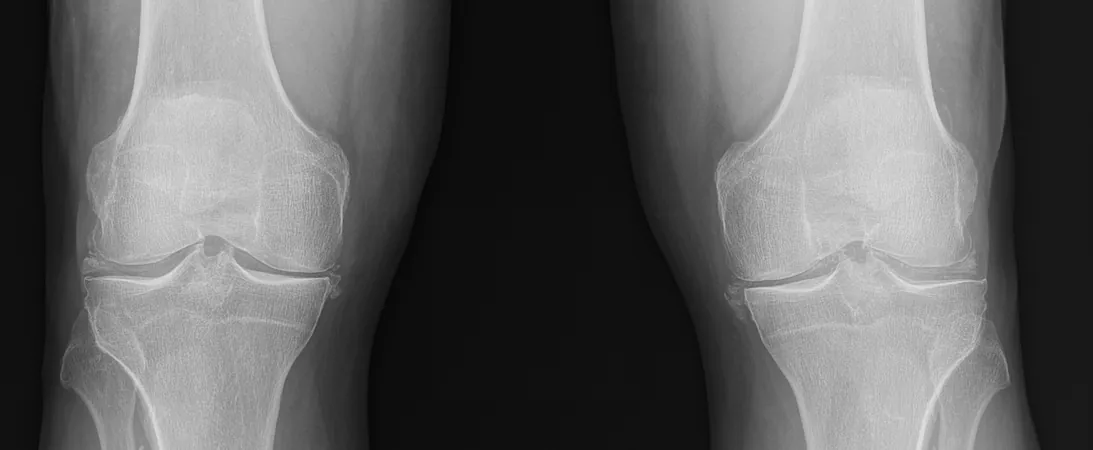
Breakthrough Study Identifies Two Genes That Could Revolutionize Treatment for Arthritis!
2025-05-28
Author: Mei
Major Discovery in Arthritis Research
In a groundbreaking genome-wide association study (GWAS), researchers have uncovered two significant genes, RNF144B and ENPP1, linked to calcium pyrophosphate deposition (CPPD) disease, a common form of inflammatory arthritis affecting millions across America, particularly those of European and African descent.
What is CPPD Disease?
CPPD disease, characterized by the accumulation of calcium pyrophosphate crystals in joints, can lead to acute or chronic symptoms and primarily affects individuals over 60. Alarmingly, imaging studies estimate that around 10% of middle-aged adults in Europe and North America show signs of CPPD, with that figure skyrocketing to about 30% among seniors over 80.
From Pseudogout to Chondrocalcinosis: Understanding the Impact
Often referred to as "pseudogout," acute CPP crystal arthritis triggers severe inflammation, thanks to the activation of pro-inflammatory pathways. One notable consequence is chondrocalcinosis, a common radiographic condition among older adults that doubles in prevalence every decade after age 60.
The Study That Could Change Everything
Conducted through the Million Veterans Program, this extensive GWAS evaluated all human genes in relation to CPPD disease among over 550,000 Veterans. The highlight? The simultaneous identification of the RNF144B and ENPP1 genes in both European and African ancestry populations.
Exciting Insights from Leading Experts
Lead investigator, Dr. Tony R. Merriman, emphasizes the significance of the ENPP1 gene, which regulates the production of chemicals that are essential for crystal formation. Co-investigator Dr. Sara K. Tedeschi expresses enthusiasm for the potential of ENPP1 inhibitors, calling them a promising avenue for effective treatments that patients desperately need.
The Future of CPPD Disease Treatment Looks Bright
While RNF144B's role remains somewhat mysterious, ENPP1 is well understood, with existing drugs targeting this protein for other ailments. These developments have caught the attention of experts like Dr. Josef Smolen, who underlines the urgent need for effective CPPD treatments beyond the current reliance on non-steroidal anti-inflammatory drugs.
A Eureka Moment for Arthritis Research
Dr. Merriman concludes with optimism about the possible breakthroughs that could stem from this research, marking it as a rare 'eureka moment' in his career. Stay tuned, as these findings might just pave the way for innovative therapies that could transform the lives of those suffering from CPPD disease!

 Brasil (PT)
Brasil (PT)
 Canada (EN)
Canada (EN)
 Chile (ES)
Chile (ES)
 Česko (CS)
Česko (CS)
 대한민국 (KO)
대한민국 (KO)
 España (ES)
España (ES)
 France (FR)
France (FR)
 Hong Kong (EN)
Hong Kong (EN)
 Italia (IT)
Italia (IT)
 日本 (JA)
日本 (JA)
 Magyarország (HU)
Magyarország (HU)
 Norge (NO)
Norge (NO)
 Polska (PL)
Polska (PL)
 Schweiz (DE)
Schweiz (DE)
 Singapore (EN)
Singapore (EN)
 Sverige (SV)
Sverige (SV)
 Suomi (FI)
Suomi (FI)
 Türkiye (TR)
Türkiye (TR)
 الإمارات العربية المتحدة (AR)
الإمارات العربية المتحدة (AR)